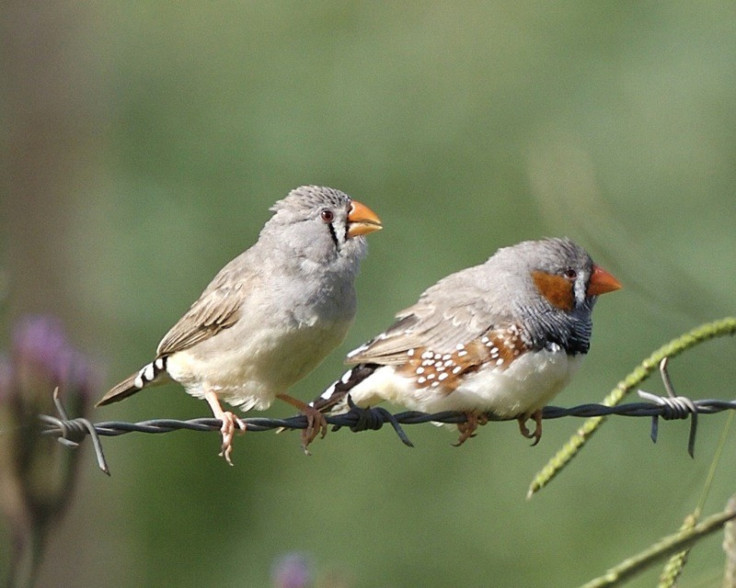Homosexual Bonds Just as Strong as Heterosexual in Zebra Finches

A new study finds that same-sex pairs of zebra finches are just as attached, loving and devoted to each other as those coupled with a member of the opposite sex.
Researchers gleaned this insight from a study of zebra finches, which prove great birds to document because of their highly vocal and playful habits. Led by Julie Elie from the University of California Berkeley, the team was interested in zebra finches' behavior because the birds establish life-long relationships and are extremely social.
"I'm interested in how animals establish relationships and how [they] use acoustic communication in their social interactions," Dr Elie told BBC Nature.
"My observations of [them] led me to this surprising result: same-sex individuals would also interact in affiliative manners, like male-female pairs," she added.
Dr. Elie, along with colleagues Clementine Vignal and Nicolas Mathevon from the University of Saint-Etienne, raised a group of all male birds to adulthood, at which point nearly half of them coupled up and bonded. The team says the paired birds perched next to each other, sang, preened, and nuzzled beaks.
To see if the males would stray if introduced to members of the opposite sex, the researchers then introduced females into the habitat. They found that, of the eight male-male pairs that had bonded, five of them disregarded the females entirely, choosing to continue with their male partners instead.
The study argues that selecting a social partner, regardless of gender, was a bigger priority. In other words, finding a mate for cohabitation and socialization was more important than finding one for reproduction.
The study does not mention whether or not the male birds attempted to mate or whether the same patterns are found in female-female bonds of the zebra finches.
Dr. Ellie argues in her findings that pair bonding can be more complex than just a male and female who meet to reproduce. At least in the case of the finches, finding a mate is also a key to survival as the birds team up to defend food and fight off predators.
This is not the first study to indicate same-sex pairings in the avian world.
Female gull and albatross partners mate with a paired male and then rear their young together.
At least two cases of male penguins forming life-long bonds in the presence of available females have been recorded in captivity. Also, evidence of penguins "flirting" with members of the same sex has been noted in the wild.
The study on the zebra finches was first reported by the BBC and published in the journal Behavioral Ecology and Sociobiology.
© Copyright IBTimes 2024. All rights reserved.












